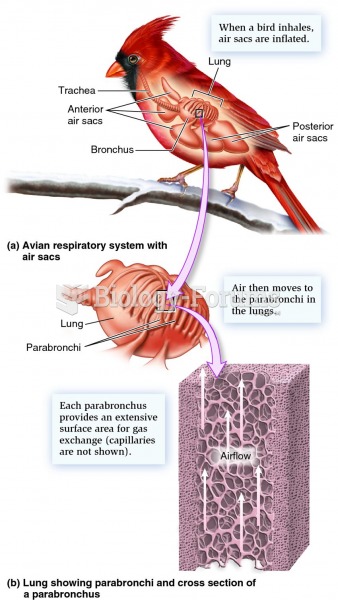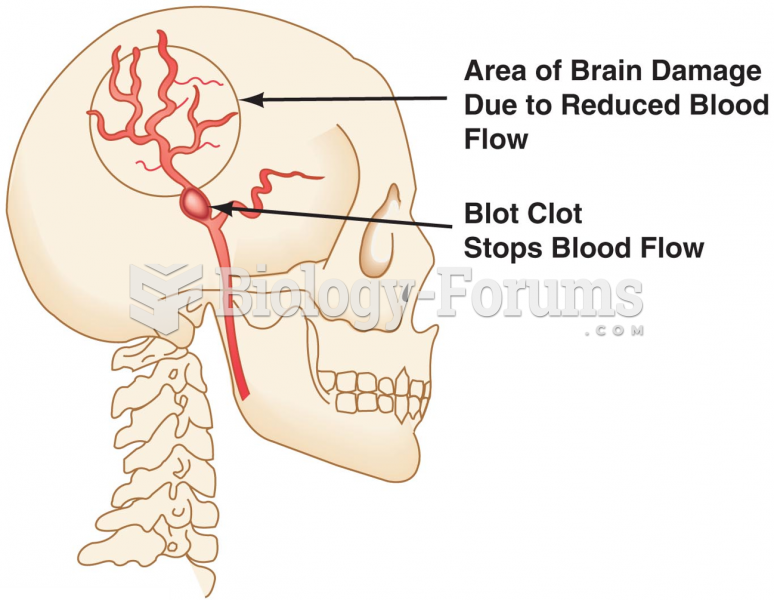|
|
|
Excessive alcohol use costs the country approximately $235 billion every year.
Women are 50% to 75% more likely than men to experience an adverse drug reaction.
In the United States, an estimated 50 million unnecessary antibiotics are prescribed for viral respiratory infections.
Sildenafil (Viagra®) has two actions that may be of consequence in patients with heart disease. It can lower the blood pressure, and it can interact with nitrates. It should never be used in patients who are taking nitrates.
Cutaneous mucormycosis is a rare fungal infection that has been fatal in at least 29% of cases, and in as many as 83% of cases, depending on the patient's health prior to infection. It has occurred often after natural disasters such as tornados, and early treatment is essential.







